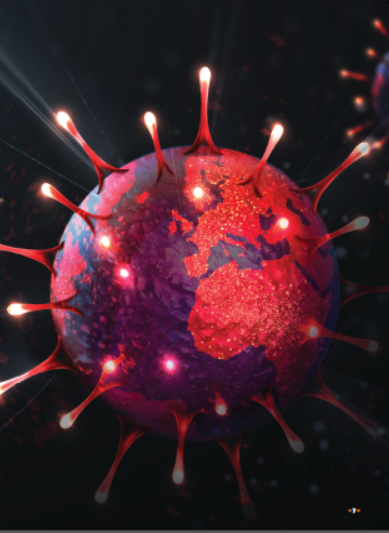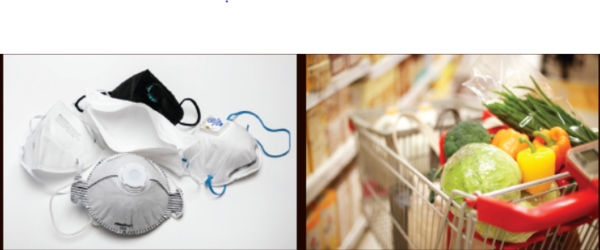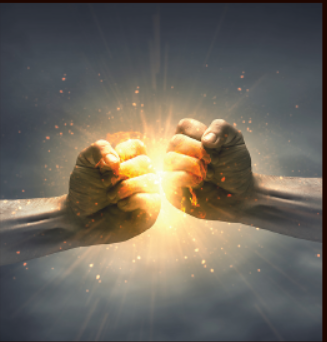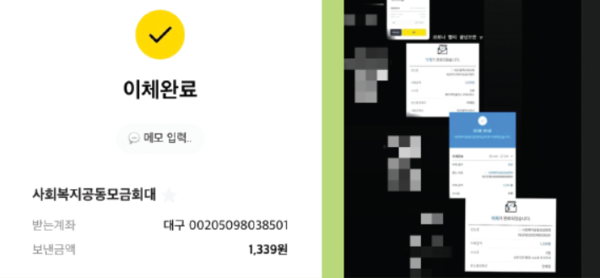
COVID-19 stands for the Coronavirus Infectious Disease 2019. COVID-19 is a viral infectious disease, caused by (SARS-CoV-2), severe acute respiratory syndrome coronavirus 2. This virus is a mutation of Corona Virus as same as MERS and SARS. The disease was first identified in 2019 in Wuhan, China and has spread globally in the 2019-20 coronavirus pandemic.
COVID-19, which can cause people to develop a fever, cough and difficulty breathing, overwhelmed the world since December 1st, 2019. According to Worldometer’s global statistics of COVID-19, it stated that there are 1,925,224 COVID-19 cases, 119,702 deaths and 447,948 recovered patients (latest update: April 14, 2020). It has been a tragedy for people who have been suffering through the COVID-19 disease or who have had to see their family members pass away. Unfortunately, there are many still suffering through it. However, there have also been good occurrences that appeared in society. Let us learn about both the negative and positive phenomena together starting from the situations in South Korea.
Starting from the 31st confirmed patient, the number of COVID-19 confirmed cases in South Korea have since skyrocketed. The 31st confirmed patient was the super-propagator who spread COVID-19 to the Shinchonji believers by worshiping in the Shinchonji service. Hence, South Korea has become the country with the largest number of COVID-19 confirmed cases after China up until March 10th, but the government and citizens have coped excellently and overcome the situation. On the other hand, even in serious situations, some people, including politicians and the media, were busy slandering and negatively treating each other.
Let us look at the examples.
Fake News, Echoes Chaos
As COVID-19 occurred and was prevalent in Wuhan, the South Korean government decided to bring their citizens back from Wuhan by a chartered airplane. The citizens in sequester were served every meal and other daily necessities. The problem started from one served meal. A quarantined citizen uploaded the meal picture via their SNS. Certain media outlets cropped the image and made fake news. The headline was ‘Korean government served a special meal marked with the president’s signature and letter, who doesn’t subsidize medical staffs’ meals’. It caused blame at the government, with articles such as ‘too much pro-China government ignored the medical staffs’ hard work’. This is the obvious fake news to cause people to distrust and blame the government blindly.
In South Korea, according to the INFECTIOUS DISEASE CONTROL AND PREVENTION ACT, if someone is confirmed to have the infectious disease, the local government shares the route where the confirmed person has been. Some netizens leaked those confirmeds’ personal information, and furthermore guessed the confirmerds’ private life based on their route. The guesses were mostly rude and absurd. There were some such as ‘the confirmer has an affair, which makes his wife angry’. As the situation became severe, a confirmed person appealed ‘please do not spread personal information’. The leak and libel are not only illegal, but also make people reluctant to get tested. Consequently, those behaviors undermine public profit and make it difficult to bring COVID-19 to an end.
Those fake news stories are borderless. In western countries including the USA and some European countries, unproven news led to panic in local societies. The fake news was dispensing lies that toilet paper would run out soon because toilet paper is made from the same material as masks. However, it was false. It caused a lot of stockpiling and rampant panic in local societies.
Moreover, unproven myths or unfounded preventative measures have poured out via mass media. Some ruined YouTubers made content such as ‘Man wearing prevention clothing, case confirmed’ or ‘Due to COVID-19, people faint out on the streets suddenly.’ Most of these are fake. It simply amplified chaos and fear.

Stockpile, Trade with Conscience
All over the world, stockpiling and re-selling phenomena become a severe problem during specific phases all around the world. Specifically, in South Korea, mask scarcity occurred. Moreover, in some European countries, they ran out of canned and dried food. Most significantly, only those who have enough money can stockpile. If you are low income, then you cannot have access to those daily necessities. It is a severe problem linking wealth and a healthy life as a causal relationship.

COVID-19, Chance to Flip Over Election
Some politicians use this severe situation as a tool for the upcoming election. For example, Cho Jae-gu, the Executive Officer of Nam-gu, Daegu handed over a handwritten letter to President Moon Jae-in when he visited the highly infected city, Daegu. The executive officer appealed for the president’s aid and subsidy, contained in the letter. Most people thought it must be about subsidies for masks or medical supplies. However, the contents of the letter were regardless of COVID-19 or medical related requests, but it instead requested a leisure sports center and shopping mall construction.
The opposing parties were busy to blame ruling parties and the government’s inability. Opposing parties spoke of the government’s failure through the media. Initially, the situation seemed to be a failure, owing to the skyrocketing number of confirmed cases that did not seem to become stable. It led to a petition for impeachment of president Moon Jae-in. It This is of course possible in democratic societies, but nevertheless, before petitions or blame, societies should be able to wait and keep watch on how the situation flows. It was premature during the initial phase to ascribe the soaring amount of confirmed cases as the result of the government’s incompetence.
It is unmistakable to all that this situation is severe. However, we should stand in solitary to overcome this hazardous pandemic. Unfortunately, some people make fake news and some use it as a tool to win the election. We must continue to be wary about those things.
Contrary to the above situations, there are also good deeds that have been done to help overcome COVID-19.
● What Efforts in Community? (JBNU & Local community)
JBNU recently notified staff and student personnel of a list of businesses to sponsor and asked them to actively use these places during mealtimes. These businesses, which are composed mostly of restaurants, are places which have been donating toward the development of JBNU every month. JBNU said, “we are running this campaign to return what we have received and to share some of the difficulties with the merchants.” In addition, the Happy Center, which is located on the first floor of the Law School (Jinsudang) at JBNU, provides consultation for school personnel and students.
(Information)
Website : https://happycenter.jbnu.ac.kr/happycenter/index.do
Contact : 063)219-5301
Additionally, in Jeonju, a ‘good rent campaign’ is underway. After COVID-19, owner-operators were directly hurt by the damage in sales. On February 12th, fourteen building owners in Jeonju Hanok Village drastically cut their rent down, and as of March 24th, 180 building owners participated in this campaign. As a result, owner-operators at 468 stores benefitted from a five percent to twenty percent reduction in rent. The movement has spread beyond local Jeonju businesses to government-affiliated organizations, autonomous communities, and big businesses, and is evaluated as one of Korea's best representatives in the policy of overcoming COVID-19.

● Warm People Who Face Fear (Donation & Volunteer Work)
Even though these people are having a hard time due to the economic recession caused by COVID-19, there are owner-operators who are leading the donation effort. The JBNU Globe met one of them, the owner who runs a chicken restaurant around JBNU. He said that after COVID-19 hit, it has continually been a difficult situation with paying rent, personnel expenses, and reduced sales in his restaurant. However, he thought that those who were more in need than himself were the medical personnel who suffered day and night, and he therefore decided to donate chicken. On February 27th, he directly delivered one-hundred fried chicken boxes to Jeonbuk National University Hospital and Jeonju Health Center. Lastly, he sent a message of hope to owner-operators. “Currently, the economy is in a slump. However, we need to help each other and ride out the events to become stronger.”
On February 25th, the Daegu Medical Association said to local doctors that there were medical team shortages in Daegu and appealed to join forces. The medical teams from all over the country responded. From March 16th, 954 people, including 332 civilians and 250 public health personnel were dispatched to hospitals in Daegu. They wore protective clothing, collected samples at screening clinics, and worked at night in the COVID-19 ward. In addition, it was not only medical teams who volunteered for medical service. Currently, volunteers who do not have a medical degree check patients’ blood pressure and body temperature or assist with distributing food for medical teams.

● A Warm Wave Flows (Campaign & Relay)
On March 1st, citizen organizations of Daegu created a “1339 National Donation Campaign” based on ideas from the number (1339) of the Korea Centers for Disease Control and Prevention Call Center. If one person sends a donation of 1,339 won to the Community Chest of Korea and encourages three more people to participate in this campaign, then nine people will participate in the donation during three days. The campaign spread through posting a fundraising image to SNS, catering to younger people using a lot of SNS. The total number of participants were 55,000, and the total amount raised was 145.4 million won.
Furthermore, February is the busiest month of flower farms in Korea. However, because of COVID-19, the demand for flowers reduced as both graduations and entrance ceremonies scheduled for February were canceled. Therefore, efforts to buy flowers were started by Song Ha-jin, Governor of Jeollabuk-do, and centered around heads of organizations such as Kim Dong-won, President of JBNU. The campaign involved ten universities in Jeollabuk-do, including JBNU.

● The Others
On March 6th, the representative OTT service, Watchaplay (a video platform similar to Netflix), decided to offer the use of their service during the COVID-19 isolation period in consultation with the Ministry of the Interior and Safety. The subjects are all self-isolated people and all confirmed cases. In addition, they also distributed three-day free passes for other nation.
Even now, contributions, relief efforts, and offering aid in human resources are being donated by many celebrities, businesses, and local governments.
Now, social distancing is needed. However, “social solidarity” is even more essential. At this moment, there is no room for wasting energy, such as politically using COVID-19, hating patients and making fake news. Let us be armed with a vaccine called community, solidarity, sharing and help, waiting for a true spring as soon as possible.
Kwon Sho-young Editor-in-Chief, Gu Seo-yoon & Lee Won-jun Reporters

